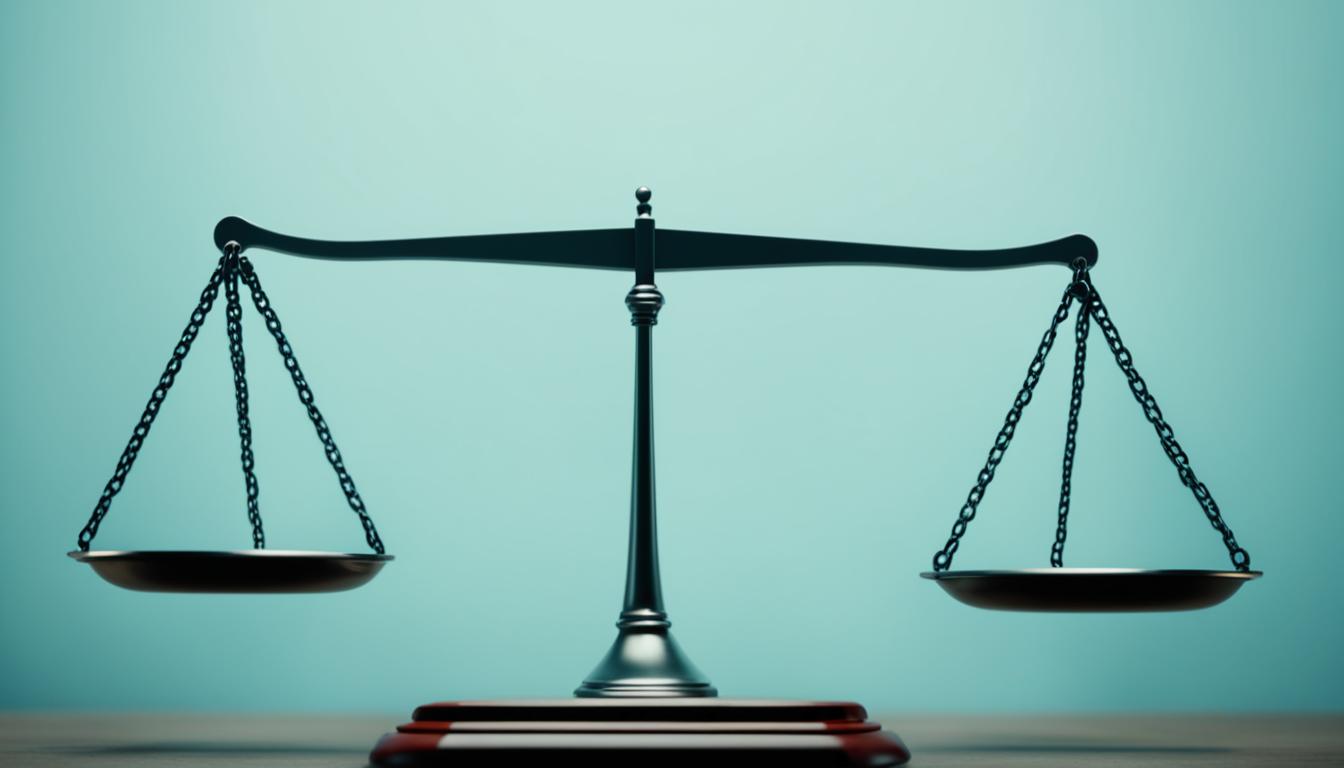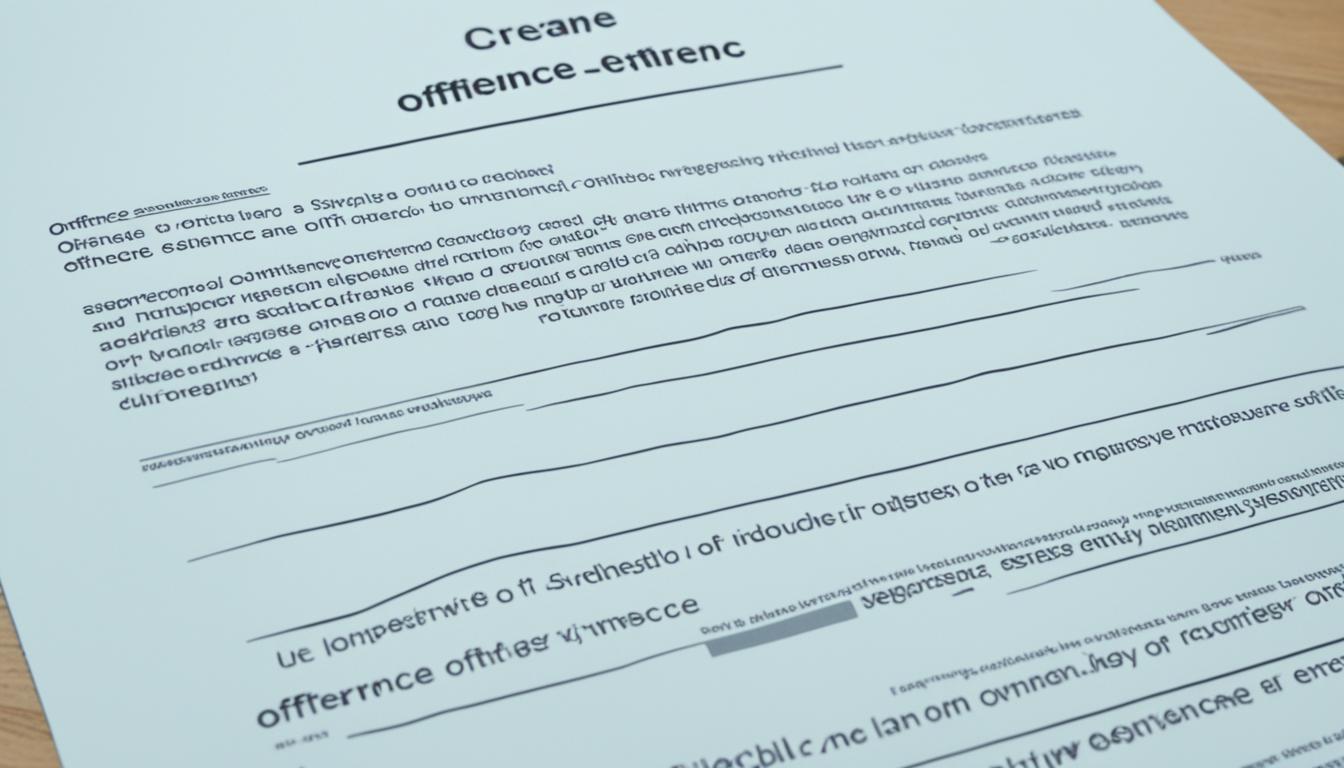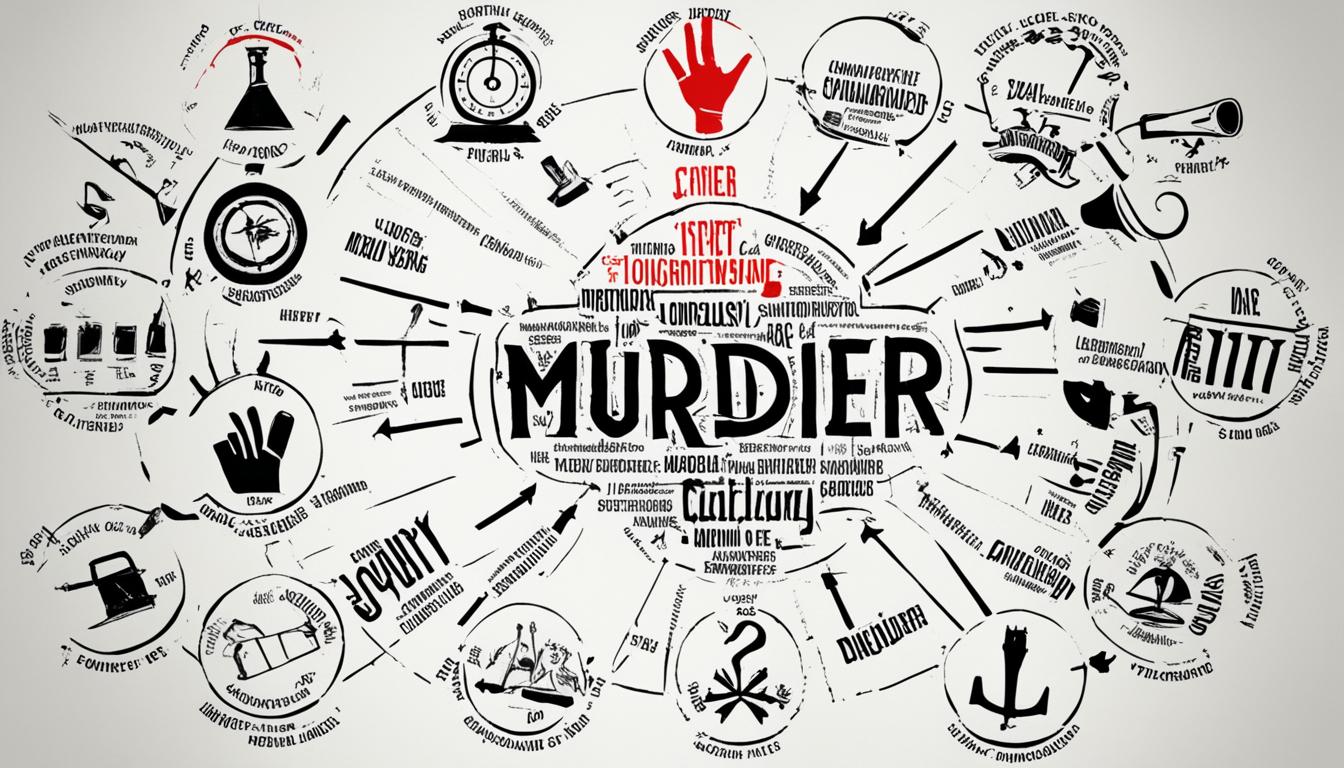Felony vs Crime: Key Differences Explained
Did you know that in Canada, a felony is defined as a criminal offense that carries a punishment of death or imprisonment for more than one year?
Understanding the difference between a felony and a crime is essential when it comes to comprehending the complexities of criminal law in Canada. While a felony is a more severe offense that can result in lengthy imprisonment, a crime is a broader term that encompasses both felonies and misdemeanors.
Key Takeaways:
- A felony in Canada refers to a criminal offense that carries a punishment of death or imprisonment for more than one year.
- A crime is a broader term that includes both felonies and misdemeanors.
- Misdemeanors are less serious offenses that typically result in fines or shorter jail sentences.
- The severity of the punishment depends on the nature of the offense and the jurisdiction in which it is committed.
- Consulting with a criminal defense attorney is crucial when facing charges for a felony or crime, as they can provide guidance and protect your rights throughout the legal process.
What Constitutes a Felony?
A felony is a serious criminal offense with grave consequences. It is typically punishable by death or imprisonment for more than one year. Felonies encompass a wide range of crimes, including murder, robbery, burglary, arson, rape, and kidnapping. The severity of the punishment depends on various factors, such as the specific crime committed and the jurisdiction where it occurred.
In Canada, felonies are classified into different degrees to determine the severity of the offense. First-degree felonies carry the most severe penalties, while fourth-degree felonies have relatively less severe consequences.
To understand the different types of felonies and their respective punishments, let’s take a closer look at the classification system:
| Felony Degree | Description |
|---|---|
| First Degree | Includes the most serious crimes, such as premeditated murder, and carries the harshest penalties. |
| Second Degree | Encompasses crimes like manslaughter and aggravated assault, with penalties less severe than first-degree felonies. |
| Third Degree | Moderate level offenses, including some types of theft, fraud, and drug offenses. |
| Fourth Degree | Least severe category, comprising crimes like theft under a specified value or non-violent drug charges. |
Understanding what constitutes a felony is crucial when navigating the criminal justice system. Whether you or someone you know is facing felony charges, it is essential to consult with a knowledgeable criminal defense attorney to assess the potential consequences and build a strong defense strategy.

Understanding a Crime
A crime is a broader term that encompasses both felonies and misdemeanors. It refers to any act that is considered harmful or dangerous to the public and is prohibited by law. Crimes can range from minor offenses, such as traffic violations, to more serious offenses like assault and theft. Unlike felonies, which carry potential imprisonment of more than one year, misdemeanors are punishable by fines or shorter jail sentences of less than one year. It is important to note that not all crimes are considered felonies, as some may fall under the category of misdemeanors or lesser offenses.

Types of Crimes
Crimes can be further categorized based on their nature and severity. Here are some common types of crimes:
- Violent Crimes: These include offenses such as murder, assault, robbery, and rape.
- Property Crimes: These involve offenses against property, including burglary, theft, arson, and vandalism.
- White-Collar Crimes: These are non-violent offenses typically committed in business or professional settings, such as fraud, embezzlement, and insider trading.
- Drug Crimes: These are offenses related to the possession, sale, or distribution of illegal drugs.
- Sex Crimes: These involve offenses of a sexual nature, including sexual assault, child pornography, and prostitution.
- Financial Crimes: These offenses are related to financial fraud and manipulation, such as money laundering and identity theft.
It is important to consult with a legal professional to understand the specific legal implications and potential punishments associated with different crimes.
Penalties for Felonies and Crimes
The penalties for felony convictions and criminal offenses can have significant legal implications. Depending on the specific offense and jurisdiction, the consequences can vary widely. It is essential to understand the potential penalties associated with felonies and crimes to navigate the legal system effectively.
Penalty for Felony
A felony conviction can result in severe punishments. These penalties are typically more severe than those for lesser offenses. The most common penalties for felonies include:
- Longer prison sentences: Felony convictions often carry imprisonment for more than one year, ranging from several years to life sentences, depending on the severity of the offense.
- Higher fines: Felonies can result in substantial fines, which are often more significant than those imposed for misdemeanors.
- Loss of rights: In addition to imprisonment and fines, a felony conviction can lead to the loss of certain rights, such as the right to vote or hold public office, depending on the jurisdiction.
It is crucial to consult with a criminal defense attorney to fully understand the specific penalties associated with the particular felony charge.
Penalty for Crime
Crimes that fall under the category of misdemeanors generally result in less severe consequences compared to felonies. The penalties for crimes can include:
- Shorter jail sentences: Misdemeanor offenses typically carry jail sentences of less than one year, with durations ranging from a few days to several months.
- Lower fines: The fines imposed for misdemeanors are generally lesser than those for felonies, but the exact amount can vary depending on the offense.
While misdemeanors are less serious than felonies, it is essential to remember that they can still have significant legal implications. Consulting with a criminal defense attorney is advisable to understand the potential consequences of the specific crime charge.
Having knowledge of the penalties for felonies and crimes is crucial when facing criminal charges. It is always recommended to seek legal representation from a qualified criminal defense attorney who can provide guidance based on the specific circumstances of the case. Legal advice can help navigate the complex legal system and work towards minimizing the potential consequences of a conviction.
Seeking Legal Representation
If you or someone you know is facing charges for a felony or crime in Canada, it is crucial to seek legal representation. Canadian criminal law can be complex, and having a skilled criminal defense attorney by your side can make a significant difference in the outcome of your case.
A knowledgeable criminal defense attorney specializing in Canadian criminal law will protect your rights throughout the legal process. They will analyze the specifics of your case, explain the charges you are facing, and ensure you understand the potential consequences. With their expertise, they will guide you in developing a strong defense strategy tailored to your unique situation.
Legal representation is vital because criminal convictions can have long-lasting implications. A criminal defense attorney will work diligently to minimize the consequences of a conviction, whether it be by reducing the charges, negotiating plea bargains, or presenting a robust defense in court. With their understanding of Canadian criminal law, they will navigate the intricacies of the legal system on your behalf, advocating for your best interests every step of the way.
- The Role of Police in Community Safety & Unity - October 6, 2025
- Quebec Police Officer Salary Insights 2023 - July 13, 2025
- Canada Arrest Protocol: What Police Say Upon Arrest - June 12, 2025




















Post Comment